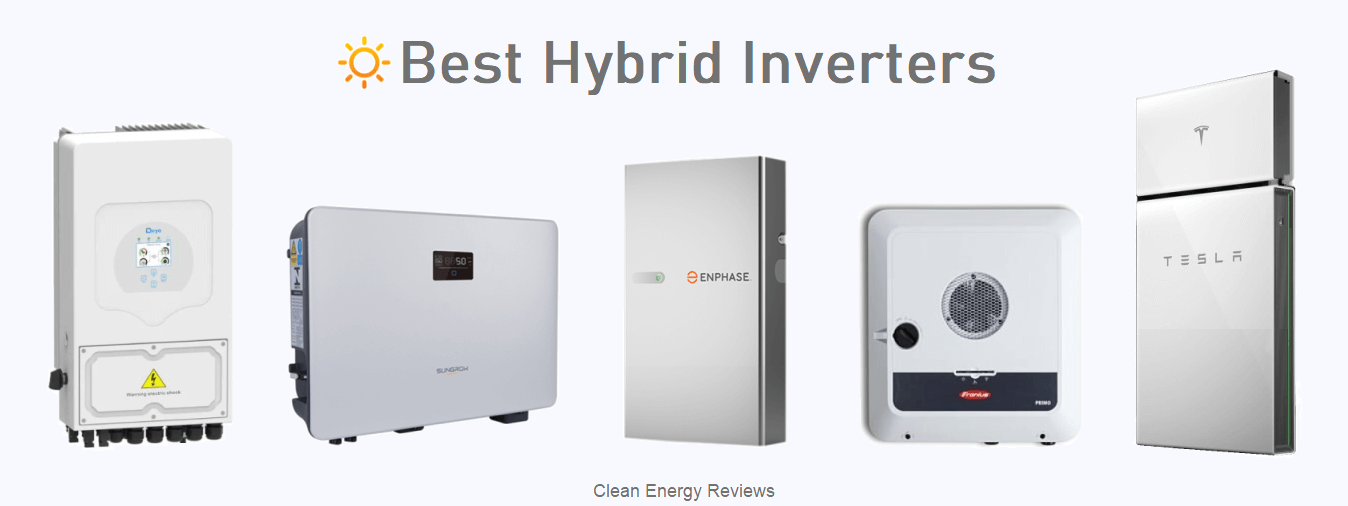How to choose a quality solar panel
Selecting a quality solar panel from the hundreds of different models and manufacturers can be a very difficult task. Here, we provide a guide to choosing the best panels based on quality, efficiency, reliability, performance, and return on investment. In our detailed solar technology review, we also offer insight into the many innovations being used to improve panel efficiency and performance.
For those not familiar with solar, read our introduction to solar panels here. In summary, solar photovoltaic (PV) modules, or simply solar panels, have not changed much in basic function over the last 30-40 years. Virtually all solar panels still use a series of silicon cells to convert sunlight to DC electricity. What has changed dramatically is the efficiency of the cells and, more so, the huge cost reduction to manufacture panels, which has come down by over 80% since 2008.
In Australia, the Clean Energy Council (CEC) has an approved database of solar panels, which ensures that certified solar installers use modules that are fire-rated and conform to solar & electrical safety standards. See the CEC approved list of solar modules here.
How to choose a quality Solar panel
The biggest problem when comparing solar panels is they generally look very similar with nothing obvious to distinguish between high and low-quality products. Unfortunately, there is often only a glossy brochure to go by, which can easily baffle people with clever marketing and slogans. Below, we explain how to sort through the marketing jargon and understand what really makes a quality solar panel.
What is a Tier 1 solar panel?
The common 'Tier 1' rating was developed by Bloomberg New Energy Finance Corporation to rate solar panel manufacturers in terms of financial stability. It does not mean a panel offers the highest performance or quality. The Tier 1 rating can be somewhat misleading as it does not guarantee a panel is free from defects or will perform over the life of the system. This is why the panel manufacturers’ reputation and history are just as important as their perceived quality. SunPower, REC and Panasonic are three manufacturers widely known for producing some of the highest quality solar panels with low degradation and leading warranties. However, these panels also come at a premium price and are often 30% more expensive than other mainstream brands. Other trusted, quality solar panel manufacturers include, Winaico and Qcells, see the full list in our best solar panels review.
In addition to the Tier 1 rating, it is important to select a quality and reliable panel based on company reputation, warranty details, real-world test results and manufacturers’ service & support.
Determining a quality solar panel is made more difficult as it is not something that can be pulled apart and checked; panels can only be assessed using specialised equipment that highlights small faults or hot spots. However, this can change once the panels are installed outside in the weather for a few years. The sun’s UV radiation and high summer temperatures create extreme conditions for any rooftop-mounted solar panel, and it can take five years or longer before any potential quality issues, such as potential induced degradation (PID), become apparent. This is why the manufacturer’s warranty period, service history, and reputation are essential when selecting a quality solar panel.
PVEL independent test labs perform rigorous testing to determine the most reliable solar panels.
Solar PV technology is constantly evolving and many new panel technologies have only been on the market for a few years. Solar panels ‘should’ have a lifespan of 25+ years, so it is vital to choose a manufacturer which has a solid reputation, good track record and is likely to still be in operation in the future to back up any potential warranty issues.
Solar panel warranty
Solar panel manufacturers offer two types of warranties: the product warranty, which guards against any manufacturing defects or component failures that might occur, and the performance warranty, which specifies the amount of degradation over time, typically after 25 years of operation.
Generally, the product warranty is 10 to 15 years, although many of the premium manufacturers offer a 25-year product warranty period. On the other hand, most manufacturers offer a 25-year performance warranty. However, the amount of degradation differs and is typically 10% to 20% loss in the rated power output after 25 years of use. For example, the chart below shows the performance warranty of the Sunpower Maxeon and Performance series panels compared to a conventional panel over 25 years.
Comparison of rated power output over the expected life of a solar panel - Image credit SunPower Corp
Premium Solar Panel Manufacturers
Here is our shortlist of the best quality and most reliable panel manufacturers based on history, service, quality, real-world performance and our feedback from solar industry professionals. See the full details of the most popular modules from the leading manufacturers using the links below.
Higher price generally equals higher Quality
Like most things, premium equipment comes at a premium price. SunPower is considered the world leader but generally costs around 30% more than the competition. LG panels also come at a higher price but have a range of panels that are more competitively priced and widely available, which puts them at the top of the list when it comes to both quality and value for money. Panasonic supplies well-proven, high-quality panels available in North America along with Solaria, which are now available in Australia & Europe. Winaico sits in the middle and is well-regarded due to reliability, performance and excellent customer service. REC and Qcells have a wide range of panels known for quality, innovation and service.
How much more do high-quality panels cost? The additional cost for premium quality panels from the leading manufacturers is typically $1500 - $2000 on a regular 6.5kW system. This is not a lot extra for panels that generally outperform and outlast cheaper panels by many years.
Return on Investment
When considering Return On Investment (ROI), it is necessary to take into account performance and degradation rates over the life of the panel. Cheaper solar panels will mean lower upfront costs and may perform well for many years, but over time, most premium panels will suffer less degradation, less chance of failure, and still be operating closer to the rated power rating, which results in higher energy yields and greater returns. After 10 to 15 years, higher-quality premium panels using N-type cells will likely outperform low-quality panels by up to 10%, which is a considerable amount when you calculate this over the annual power generation.
The risk of panel failure or performance issues is lower with known high-quality manufacturers who have a solid reputation, good track record and independent testing to verify long-term performance. The company's financial standing is also important to ensure the warranty is honoured well into the future. However, despite the perceived company viability, several large solar manufacturers like SunPower have had serious financial difficulties, and some others have even become insolvent over the years, so there is a growing trend for manufacturer warranties to be backed up by large third-party insurance companies or organisations like PowerGuard.
Value solar panel manufacturers
Besides the premium panel brands, there are many well-regarded manufacturers offering a wide range of quality, affordable panels. The most well-known of these manufacturers are Jinko Solar, Canadian Solar and Trina Solar. These top three have been on the market for many years and have proven to provide a good to very good level of reliability, service and warranty support. Hyundai, SunTech, JA Solar and Phono Solar are also very well regarded with a good track record.
Below is our list of the best ‘value’ solar panel manufacturers. LONGi Solar is the most recent manufacturer on the list and has recently become the world’s largest monocrystalline solar panel manufacturer by volume. See more details in the section below. See the latest list of the best solar panels.
Phono Solar
SunTech
JA Solar
Risen Energy
PVEL Independent Panel Testing
One of the world’s leading independent solar module testing and performance services PVEL in association with DNV-GL produce the annual 'PV Module Reliability Scorecard Report' based on the results from the rigorous testing procedures. Unfortunately not all the different models from the many manufacturers are tested as the manufacturer has to agree to participate.
Overall results from the last 6 years of PV module reliability scorecards - Image Credit DNV-GL PVEL
The recent 2020 PV module scorecard consists of four durability tests explained below. Over the last few years, most of the top-rated solar panel manufacturers have consistently scored as a ‘Top performer’ among many of the world’s leading solar brands tested. A top performer does not mean they are ranked as number 1 but among the highest performing modules in the group with no severe degradation or failures.
The four extreme solar module durability tests
The scorecard rating is based on the four rigorous durability tests listed below which put panels through extreme temperature, humidity and loading to simulate the most severe real-world conditions.
Thermal cycling test - Measures the module durability in extreme temperatures resulting in expansion and contraction.
Damp heat test - Measures module durability in high temperature and humidity and examines for signs of moisture ingress or corrosion.
Dynamic mechanical load test - This involves cyclic loading in extreme conditions causing module bending to simulate high wind and snow loads.
PID or Potential induced degradation test - measures current leakage or loss of power under high voltage, temperature and humidity conditions.
For more detailed information or solar module test results from numerous panel manufacturers, it is recommended to refer to the annual PV Module Reliability Scorecard Report. View the latest PVEL Module Reliability Scorecard Report here
Solar Panel Efficiency
The efficiency of a solar panel is a measure of the amount of solar irradiation or solar energy which falls on a specific area and is converted into electricity. The term efficiency is thrown around a lot but a slightly more efficient panel does not always equate to a better quality panel. Many people consider efficiency to be the most important criterion when selecting a solar panel but what matters more is the quality and support as explained earlier. Quality is generally related to real-world performance, reliability, company history and manufacturers warranty conditions. See our complete article explaining panel efficiency and the full list of the most efficient solar panels.
The efficiency of the various silicon solar cells*
See more articles from Clean Energy Reviews
Solar power questions?
Visit our community discussion in our solar info forum.








Detailed guide to the many specifications to consider when designing an off-grid solar system or complete hybrid energy storage system. Plus, a guide to the best grid-interactive and off-grid inverters and hybrid solar inverters for residential and commercial energy storage.